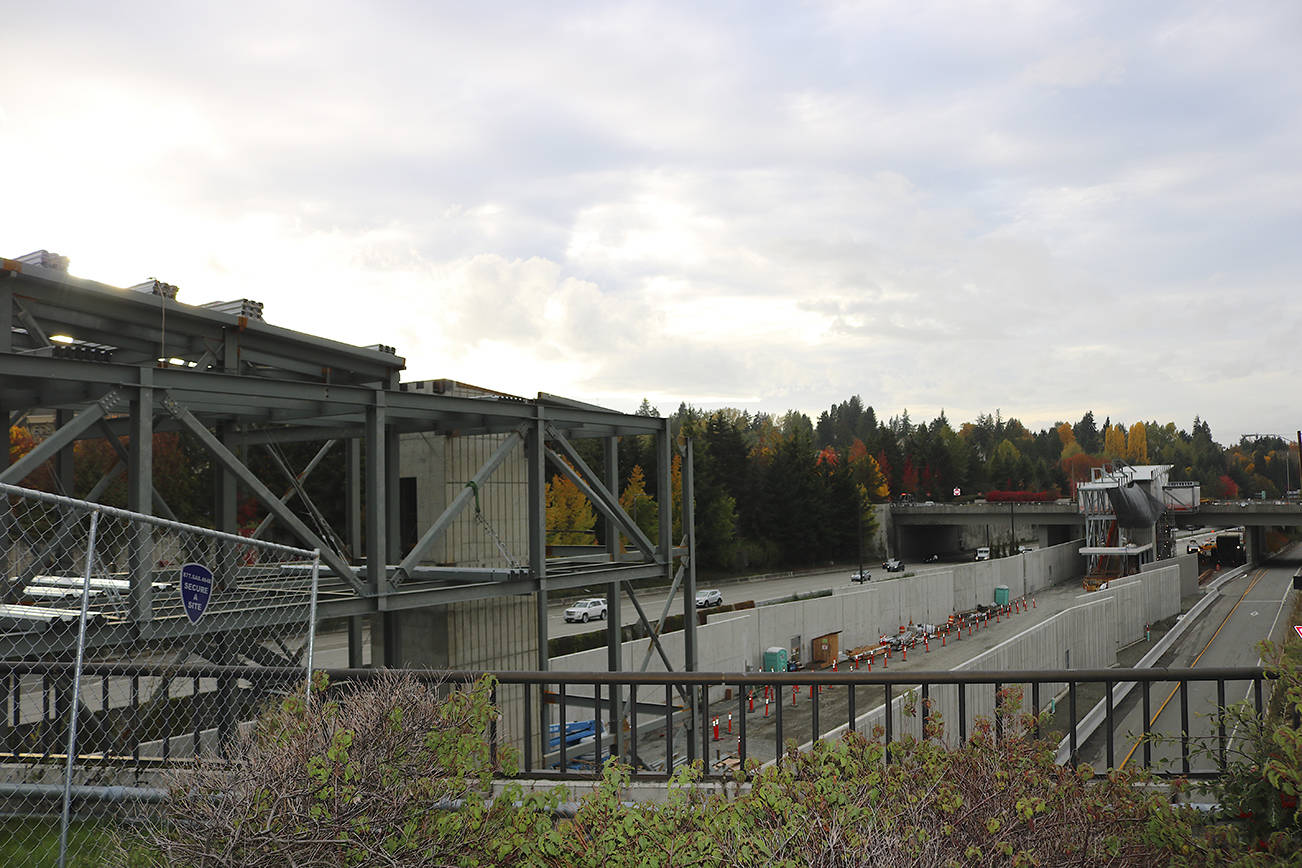By Yuna Kim
Special to the Reporter
Mercer Island’s six-month rideshare pilot program — launched on April 23 to help commuters access the Mercer Island Park and Ride with discounted costs of Uber and Lyft — ends today (Oct. 31).
The city is now gathering data from two vendors and users to determine the next step. Uber and Lyft have been sending reports to the Mercer Island City Council on a monthly basis. The reports include the number of frequent riders, the number of rides each day, the average cost per trip and the percentage of trips that were shared rides.
“We are waiting for the final report,” said Ross Freeman, a city sustainability and communications manager. “We will evaluate usage and adoption and assess from all we learned. This final report will help us determine the next mobility solution program.”
The city is now in the process of designing an online survey with the help of Uber and Lyft to hear feedback and expectations from users.
“We have seen hundreds of people trying it at least once and many of them became to be regular users,” Freeman said. “Some people use it almost daily.”
The intention of the project was to make residents leave their cars at home and try new options of a first-mile solution, test new behaviors of the residents to improve the access to Mercer Island transit and reduce the number of Single Occupant Vehicles (SOV).
Each rideshare provider contributed $10,000 to the city.
“This project has been very successful,” said Jackson Taylor, an operations and logistics manager at Uber. The number of Uber rides in Mercer Island increased by 2.25 times.
Todd Kelsay, a general manger at Lyft, also said monthly rides have nearly doubled since May in an email.
After the rates changed after the first three months from a flat fee of $2 per solo ride and $1 per shared ride to $5 per solo ride and $2 per shared ride, the number of users decreased, Taylor said.
“I would like something that would replace this program,” said Raine Hartell, a Mercer Island resident who commutes to downtown Seattle via bus. “To be honest, there is no point of using Uber for me if it is not affordable anymore.”
Mercer Island Park and Ride’s 447 stalls used to fill up by 7:30 a.m. on weekdays before the East Link light rail construction — a project expanding light rail from downtown Seattle to the Eastside. It now fills up by 7 a.m. with the closure of South Bellevue Park and Ride and the loss of Interstate-90 Center Roadway due to rail construction.
The city is seeking a first-last mile solution. It is now under discussion with King County Metro to find a new way to improve the congestion.
“Metro shuttle bus 630, for instance, has been very popular with the residents,” Freeman said. “It is an efficient direct route that operates five times in the morning and five times in the evening to move commuters between Mercer Island and downtown Seattle on weekdays.”
Mercer Island also worked in a partnership with LimeBike and launched a bikeshare pilot program, “offering a fleet of 25 electric-assist rental bicycles available to any rider.”
“If the city council wants to turn this project into something on a permanent basis, we are happy to have that conversation,” Taylor said.
It is not very common that the city partners with rideshare providers in the United States. Mercer Island is not the only city that wants to provide more options for the residents.
“It’s been rewarding to partner with such a forward looking, progressive city to tackle the challenges they face around parking and transportation,” Kelsay said.
Mercer Island is not the only city that wants to provide more options for the residents.
“I think it is a very creative solution when everywhere is maxed out with cars,” Freeman said. “Long-term hope is to help people create new behaviors to take transit. Light rail construction will be finished in four years from now, it will be a life changer and have a big positive impact on the community.”


